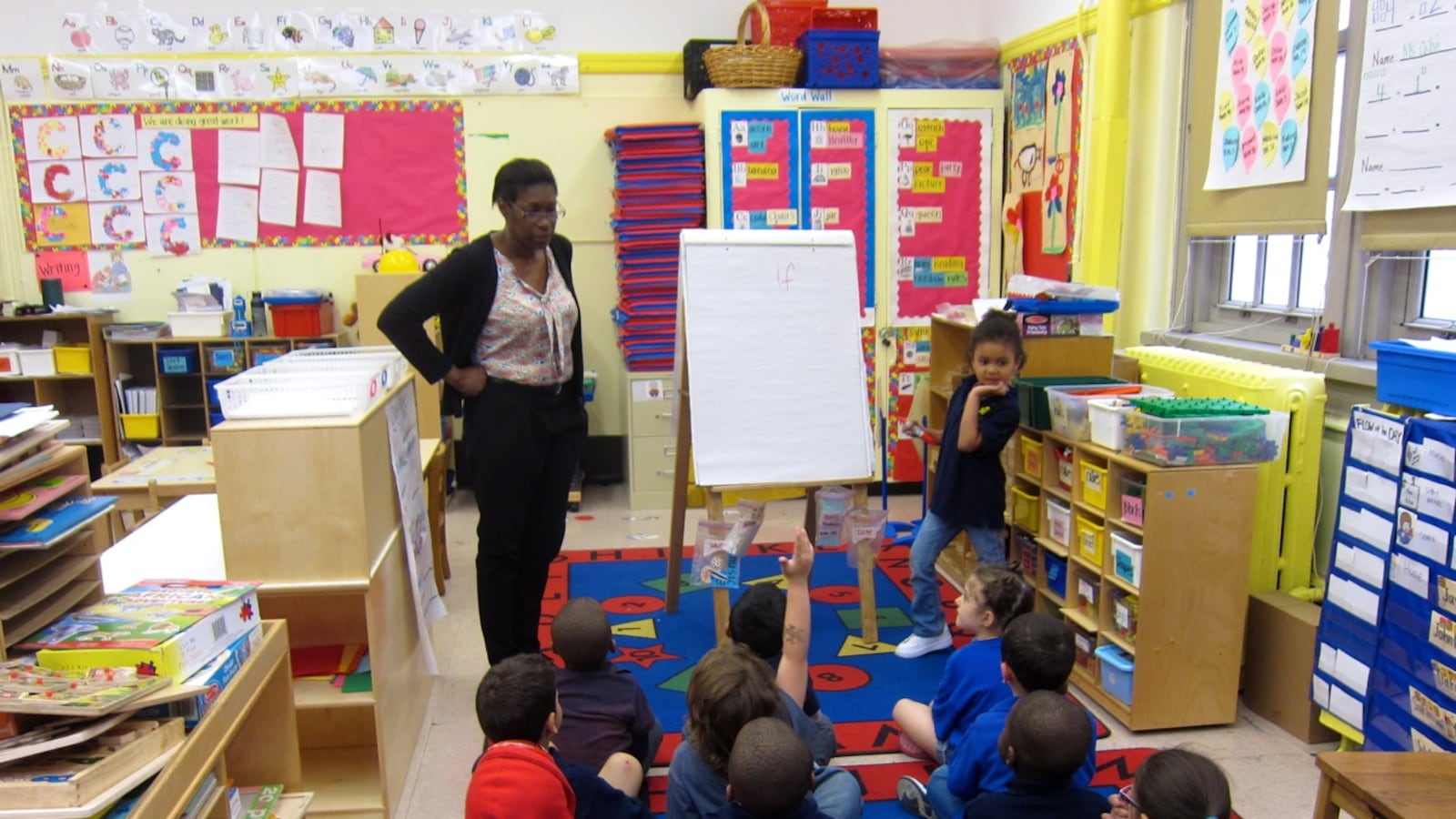The 18 pre-kindergarten students at P.S. 63 in the East Village benefit in many ways from having their program based at a public school. They use the school’s gym. They take art and music with the school’s elective teachers twice a week. They attend all-school assemblies.
But if they need speech therapy, they can’t just walk down the hallway to work with Audrey Kent, the school’s full-time speech therapist. That’s because pre-K students are still a part of the city’s pre-school special education system, which typically uses different providers.
Public schools offering pre-K navigate two systems for providing supports like speech and physical therapy, known as related services: one for pre-K, and another for all other grades. This is one of many reasons that the city’s plan to add 4,268 new full-day seats for four-year-olds to elementary schools by September presents a challenge more complicated than simply adding a grade.
Assistant Principal Jodi Friedman, who oversees P.S. 63 S.T.A.R. Academy’s one pre-K class and is preparing for the second class the school will open next year, said that going through a separate process to secure services for pre-K students can present challenges for families and for the school.
The process “is not as streamlined as if it’s happening through the school,” she said. “It puts a little more responsibility on parents.”
Related services for older students are provided by department employees like Kent whenever possible. Therapists and other service providers for pre-K students can also work with students in their schools, but parents and classroom teachers need to wait for the city’s Committees on Preschool Special Education to select the providers and then have to schedule their visits.
Darlene Cameron, the principal of P.S. 63 S.T.A.R. Academy, said she has seen this step lead to delays. And if students identified as needing speech therapy have to wait to receive it, Kent said, they can lose ground during a “prime moment for language development.”
The system for providing special education services to pre-K students isn’t new, and principals raised few concerns about the quality of the services provided. But with the rapid expansion of pre-K planned for next year, more schools will now have to navigate the less familiar process.
That process begins with an evaluation, which must happen before a student can receive services. While evaluations for older students are usually done on-site by the school’s special education team, pre-K students’ evaluations are coordinated by the city’s pre-school special education committees and take place outside of the school building.
Kevyn Bowles, the principal of New Bridges Elementary in Brooklyn, said that navigating that part of the system can be tricky. Pre-K teachers are still involved in the evaluation process: they fill out reports and meet with the committee social workers in charge of their students’ cases. But Bowles said it’s difficult for parents, teachers, and administrators to communicate as closely as they do for older students’ evaluations.
“Our teachers work really hard to make sure they are very engaged in the process of the evaluation of students who potentially have delays or disabilities in pre-K,” he said.
“It would be easier if it were an in-house process, because that level of communication between the people who work every day with the students and the people doing the evaluation is so important to making sure it’s done in way that best captures the needs of students.”
Bowles expects that his team will have to spend more time supporting pre-K students’ off-campus evaluations next year, when the school increases its pre-K offerings from two classes to five.
Jayne Sclavos, the parent coordinator at P.S. 115 in Brooklyn, is also expecting her school’s load to increase. Though no students require special education services in the three pre-K classes the school currently runs, she expects that will change when the school adds two new classes this fall.
“We haven’t run by that yet [this year], but I’m sure we’re going to,” she said.
Four-year-old students with severe needs often attend special programs outside of public schools. But many children in public school pre-K programs do require related services, even in cases where teachers have dual certification in early childhood education and special education.
A Department of Education spokesperson said the city is working on plans for providing special education services in the new universal pre-K programs.
The spokesperson did not clarify why related service providers based in elementary schools aren’t regularly selected to work with pre-K students, or whether there are any circumstances under which the same therapists can work with pre-K students and older students.
Leslie Caraballo, a member of the Citywide Council on Special Education whose son has special needs, said even she doesn’t know those answers.
“Ideally, you should have the same providers,” she said.
Friedman said she’s hoping the department will provide more opportunities for communication between the preschool special education committees and the school’s special education team.
“We’d love to be able to collaborate more, because it would make a big difference,” she said.
Don’t miss the latest New York City schools news: sign up for our morning newsletter.

